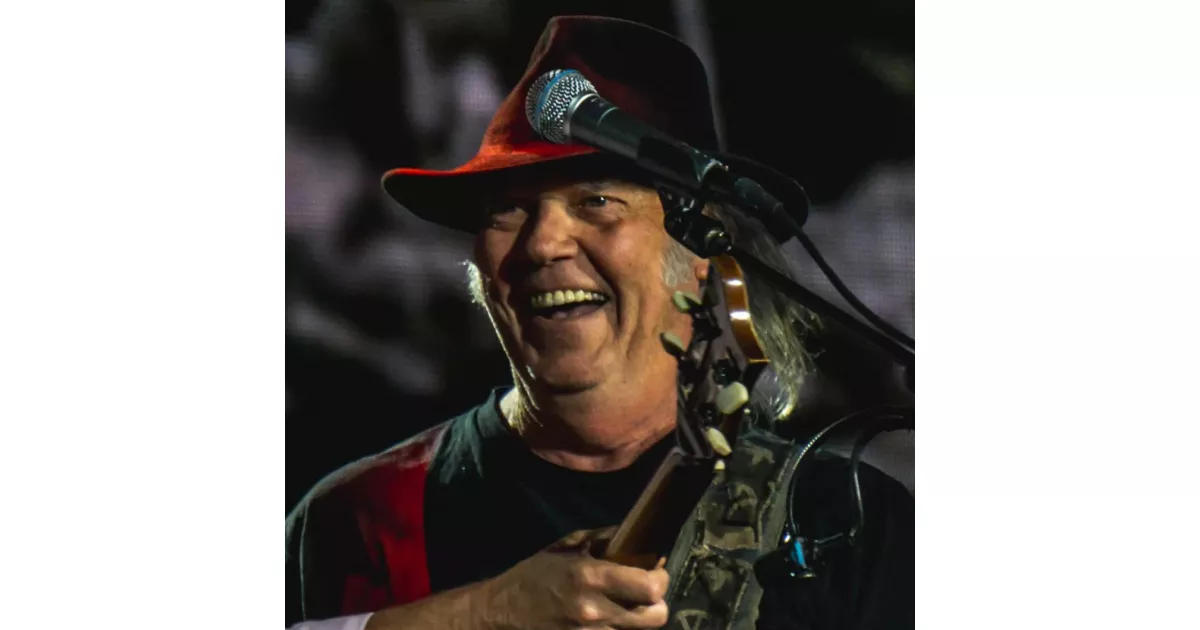Neil Young is a celebrated Canadian-American singer-songwriter renowned for his impactful contributions to folk and rock music. His career, spanning from the 1960s, includes stints with Buffalo Springfield and Crosby, Stills, Nash & Young, alongside a prolific solo career often accompanied by the band Crazy Horse. He is acclaimed for critically lauded albums like 'Everybody Knows This Is Nowhere,' 'After the Gold Rush,' 'Harvest,' and 'Rust Never Sleeps.'
1918: Birth of Neil Young's Parents
Neil Young's parents, Scott Alexander Young and Edna Blow Ragland "Rassy" Young, were both born in 1918.
1940: Marriage of Neil Young's Parents
Neil Young's parents were married in Winnipeg, Manitoba in 1940.
1942: Birth of Robert "Bob" Young
Neil Young's brother, Robert "Bob" Young, was born in 1942.
November 12, 1945: Birth of Neil Young
Neil Percival Young was born on November 12, 1945 in Toronto, Canada.
1945: Birth and Early Life
Neil Young was born in Toronto, Ontario in 1945. He lived in various places in his early life, including Toronto, Omemee, and Pickering, Ontario, before settling in Winnipeg, Manitoba.
1945: Neil Young's Family Moves to Omemee, Ontario
Neil Young's family moved to Omemee, Ontario in 1945, shortly after his birth.
1951: Neil Young Contracts Polio
In the late summer of 1951, Neil Young contracted polio during a major outbreak in Ontario, causing partial paralysis on his left side.
1952: Neil Young Moves to Pickering
Neil Young moved from Omemee to Pickering in 1952.
1952: Residence in Omemee
Neil Young resided in Omemee until 1952.
1956: Residence in Pickering
Neil Young lived in Pickering, Ontario in 1956.
1956: Neil Young Lives in Winnipeg
Neil Young lived in Winnipeg for one year in 1956.
1957: Residence in Toronto
Neil Young lived in Toronto in 1957.
1957: Neil Young Moves to Toronto
Neil Young moved to Toronto in 1957.
1958: Residence in Winnipeg
Neil Young resided in Winnipeg in 1958.
1959: Fender Releases Tweed Deluxe Amplifier
Fender released the Tweed Deluxe amplifier, a model Neil Young would later favor, in 1959.
1959: Residence in Toronto
Neil Young resided in Toronto in 1959.
1959: Neil Young Briefly Attends Lawrence Park Collegiate Institute
Neil Young was a first-year student at Lawrence Park Collegiate Institute in 1959, where he is rumored to have been expelled for riding a motorcycle down the hall.
1959: Production Year of the Lincoln Used for LincVolt
Neil Young's LincVolt project used a 1959 Lincoln model as its base.
1960: Neil Young Leaves Toronto
Neil Young left Toronto in 1960.
1960: Residence in Toronto
Neil Young lived in Toronto during 1960.
1960: Divorce of Neil Young's Parents and Move to Winnipeg
Neil Young's parents divorced in 1960, and he moved to Winnipeg with his mother.
1963: Beginning of Neil Young Archives Vol. 1
1963 marked the beginning of the period covered in Neil Young Archives Vol. 1 (1963–1972).
1963: Early Career Beginnings
Neil Young's career had begun by 1963, marking the start of the material included in "The Archives Vol. 1 1963–1972".
1966: Formation of Buffalo Springfield and Release of Debut Album
Neil Young formed Buffalo Springfield with Stephen Stills, Richie Furay, Dewey Martin, and Bruce Palmer. Their debut album, "Buffalo Springfield", was released in 1966.
1966: Neil Young Joins the Mynah Birds
Neil Young joined the Rick James-fronted Mynah Birds in 1966.
1966: Residence in Toronto and Winnipeg
Neil Young lived in both Toronto and Winnipeg in 1966.
1967: Release of Buffalo Springfield Again
Buffalo Springfield released their second album, "Buffalo Springfield Again" in late 1967.
1967: Young Purchases First Vintage Fender Deluxe Amplifier
In 1967, Neil Young bought his first vintage Fender Deluxe amplifier for US$50, sparking a lifelong affinity for the model.
May 1968: Release of Buffalo Springfield's Final Album, Last Time Around
Buffalo Springfield released their final album, "Last Time Around", in May 1968, fulfilling a contractual obligation.
December 1968: Marriage to Susan Acevedo
Neil Young married Susan Acevedo, a restaurant owner, in December 1968.
1968: Neil Young Plays Guitar for The Monkees
Neil Young worked as a studio session guitarist for The Monkees in 1968, contributing to their "Head" and "Instant Replay" albums.
January 22, 1969: Release of Neil Young's Debut Album
On January 22, 1969, Neil Young released his self-titled debut solo album under Reprise Records after signing a deal with them. The album received mixed reviews.
May 1969: Crosby, Stills & Nash Release Debut Album
Crosby, Stills & Nash released their eponymous debut album as a trio in May 1969, marking the beginning of their influential journey in folk rock music.
May 1969: Release of "Everybody Knows This Is Nowhere"
Neil Young, along with his newly formed band Crazy Horse, released their debut album, "Everybody Knows This Is Nowhere," in May 1969. The album, recorded in just two weeks, features iconic tracks like "Cinnamon Girl," "Cowgirl in the Sand," and "Down by the River," all reportedly written by Young in a single day while battling a high fever.
August 16, 1969: Crosby, Stills, Nash & Young's Debut Performance
On August 16, 1969, the newly formed quartet, Crosby, Stills, Nash & Young, made their debut performance in Chicago, marking the start of a creatively charged but often tumultuous chapter in their musical journey.
1969: Release of Everybody Knows This Is Nowhere
Neil Young released his critically acclaimed album, Everybody Knows This Is Nowhere in 1969.
1969: Neil Young States Phil Ochs was "a big influence on me"
Neil Young stated that Phil Ochs was "a big influence on me" in 1969, placing him "on the same level with Dylan in my eyes."
March 11, 1970: Release of "Déjà Vu" by Crosby, Stills, Nash & Young
Crosby, Stills, Nash & Young, released "Déjà Vu" on March 11, 1970. This album marked a commercially successful period for the band, but was also filled with creative clashes and tensions, especially between Young and Stills.
May 4, 1970: Kent State Massacre and the Release of "Ohio"
On May 4, 1970, the Kent State massacre, a significant event in US history, took place where unarmed students protesting the Vietnam War were shot by the Ohio National Guard. Deeply affected by the tragedy, Neil Young wrote and recorded "Ohio" with Crosby, Stills, Nash & Young. The song was swiftly released as a single, reflecting their immediate and powerful response to the event.
August 31, 1970: Release of "After the Gold Rush"
"After the Gold Rush," Neil Young's third solo album, was released on August 31, 1970. Featuring collaborations with musicians like Nils Lofgren, Stephen Stills, and Greg Reeves, the album marked a commercial breakthrough for Young as a solo artist and included some of his most enduring tracks, including "Tell Me Why," "Don't Let It Bring You Down," "Only Love Can Break Your Heart," "When You Dance I Can Really Love," and the title track.
October 1970: Divorce from Susan Acevedo
Susan Acevedo filed for divorce from Neil Young in October 1970.
1970: Neil Young Expresses Dissatisfaction with Debut Album
In 1970, Neil Young publicly criticized his debut album, stating that it had been overdubbed rather than played the way he envisioned.
1970: Neil Young Embarks on Solo Acoustic Tour
In the autumn of 1970, Neil Young embarked on a solo acoustic tour across North America, captivating audiences with heartfelt renditions of songs from his time with Buffalo Springfield and CSNY, selections from his solo albums, and a sprinkle of brand-new material.
1970: Relationship with Carrie Snodgress
Neil Young and actress Carrie Snodgress began a relationship in late 1970, inspired by his seeing her in the film "Diary of a Mad Housewife."
1970: Purchase of Broken Arrow Ranch
Neil Young bought the Broken Arrow Ranch, a 1,000-acre property near La Honda, California, for US$350,000 in 1970.
1970: Neil Young Receives Green Card
Neil Young received his green card, granting him permanent residency in the United States, in 1970.
1970: Release of After the Gold Rush
Neil Young released his critically acclaimed album, After the Gold Rush in 1970.
March 1971: Neil Young Records with the London Symphony Orchestra
In March 1971, Neil Young recorded tracks with the London Symphony Orchestra at Barking Town Hall, showcasing his willingness to experiment and blend different musical worlds. These recordings were later included in his critically acclaimed album "Harvest."
February 14, 1972: Release of "Harvest"
"Harvest," Neil Young's fourth studio album, was released on February 14, 1972, and became the best-selling album of the year in the US. Recorded with a group of last-minute session musicians dubbed The Stray Gators, as well as featuring guest appearances by Linda Ronstadt and James Taylor, the album marked a significant commercial and creative peak in Young's career.
September 8, 1972: Birth of Son, Zeke
Neil Young and Carrie Snodgress' son, Zeke, was born on September 8, 1972. Zeke was later diagnosed with cerebral palsy.
November 18, 1972: Death of Danny Whitten
On November 18, 1972, Danny Whitten, guitarist for The Stray Gators, died of an apparent alcohol and diazepam overdose after being fired from Neil Young's tour preparations due to his drug abuse. Young expressed his grief and sense of responsibility in a 1975 interview with Rolling Stone.
1972: End of Neil Young Archives Vol. 1
1972 marked the end of the period covered in Neil Young Archives Vol. 1 (1963–1972).
1972: Release of Harvest
Neil Young released his critically acclaimed album, Harvest in 1972.
1972: Period Covered in "The Archives Vol. 1"
The year 1972 marks the end of the period covered in "The Archives Vol. 1 1963–1972".
September 1973: Performance at the Roxy
In September 1973, Neil Young performed a show at the Roxy in West Hollywood with the Santa Monica Flyers. This performance was later released as a live album.
October 15, 1973: Release of Time Fades Away
On October 15, 1973, Neil Young released "Time Fades Away," an album recorded live with new material. Despite Young's own dissatisfaction with the album, it marked a period of musical experimentation and became known as part of his "Ditch Trilogy."
1973: Direction of Journey Through the Past
Using the pseudonym "Bernard Shakey", Neil Young directed the film, Journey Through the Past in 1973.
July 16, 1974: Release of On the Beach
On July 16, 1974, Neil Young released "On the Beach," an album with a more melodic and acoustic sound compared to his previous work. It explored dark themes such as societal disillusionment and the pitfalls of success. Though initially a commercial failure, it gained critical acclaim over time.
1974: Crosby, Stills, Nash & Young Reunion Tour
In 1974, Neil Young reunited with Crosby, Stills, and Nash for a concert tour after a four-year break. The tour, notable for being one of the first stadium tours, was partly documented and later released as "CSNY 1974."
1974: Meeting Pegi Morton
Neil Young met Pegi Morton, who worked as a waitress near his ranch, in 1974.
1974: Release of On the Beach
Neil Young released his critically acclaimed album, On the Beach in 1974.
June 20, 1975: Release of Tonight's the Night
After a two-year delay due to its dark tone and rawness, Neil Young's album "Tonight's the Night" was released on June 20, 1975. The album, inspired by the drug-induced deaths of Whitten and roadie Bruce Berry, is now considered a landmark album and a testament to Young's artistic depth.
November 10, 1975: Release of Zuma
On November 10, 1975, Neil Young released "Zuma," his eighth studio album, marking his return to working with Crazy Horse. The album featured songs exploring themes of failed relationships, including the epic track "Cortez the Killer."
1975: End of Relationship with Carrie Snodgress
Neil Young's relationship with Carrie Snodgress ended in 1975.
1975: Impact of Tonight's the Night
Upon its release in 1975, "Tonight's the Night" received mixed reviews and achieved limited commercial success, mirroring the trend of the "ditch" trilogy albums. However, it eventually garnered recognition as a seminal work in Young's discography.
August 11, 1976: Recording of "Hitchhiker"
On August 11, 1976, Neil Young recorded the "Hitchhiker" album at Indigo Studios in Malibu, featuring a collection of songs played on acoustic guitar or piano.
September 20, 1976: Release of Long May You Run and Abrupt Tour End
On September 20, 1976, "Long May You Run," a collaborative album by Neil Young and Stephen Stills as The Stills-Young Band, was released. The subsequent tour was cut short by Young, who famously sent Stills a telegram expressing his decision to part ways.
November 1976: Songs for Judy Tour
In November 1976, Neil Young embarked on a tour with Crazy Horse, during which he recorded solo performances that would later be released as the album "Songs for Judy".
1976: The Last Waltz Performance
In 1976, Neil Young participated in "The Last Waltz," the farewell concert by The Band, joining a star-studded lineup that included Bob Dylan and Joni Mitchell.
June 13, 1977: Release of American Stars 'n Bars
Neil Young released "American Stars 'n Bars" on June 13, 1977. The album featured a mix of new material, including the song "Like a Hurricane," and previously recorded tracks intended for the unreleased "Homegrown" album.
June 1977: Formation and Performances of The Ducks
In June 1977, Neil Young formed the band The Ducks with Jeff Blackburn, Bob Mosley, and John Craviotto. They played 22 shows in Santa Cruz, CA, limited to the city due to Young's existing contract with Crazy Horse.
1977: Release of "Decade" and Neil Young's Reflection on "Heart of Gold"
In 1977, Neil Young released "Decade," a compilation album featuring some of his most significant work. In the liner notes, Young famously described "Heart of Gold" as the song that "put me in the middle of the road," expressing his ambivalence towards the mainstream success it brought him and his desire to pursue a more raw and unconventional path.
August 1978: Marriage to Pegi Morton
Neil Young and Pegi Morton got married in August 1978.
October 2, 1978: Comes a Time Release
On October 2, 1978, Neil Young released "Comes a Time," his first new solo album since the mid-1970s, marking a return to his commercially accessible, country-rock sound.
1978: Rust Never Sleeps Tour
In 1978, Neil Young embarked on his lengthy "Rust Never Sleeps" tour, featuring a mix of acoustic and electric sets, with the latter reflecting the punk rock influences of the time.
February 1979: "Lotta Love" Chart Success
In February 1979, Nicolette Larson's version of Young's "Lotta Love" reached No. 8 on the Billboard Hot 100.
July 2, 1979: Rust Never Sleeps Album Release
On July 2, 1979, Neil Young released the album "Rust Never Sleeps," featuring studio-enhanced live recordings from his recent tour.
November 19, 1979: Live Rust Album Release
Neil Young released the live album "Live Rust" on November 19, 1979, a true concert recording capturing both his acoustic and electric sets.
1979: Release of Rust Never Sleeps
Neil Young released his critically acclaimed album, Rust Never Sleeps in 1979.
November 3, 1980: Hawks & Doves Release
On November 3, 1980, Neil Young released "Hawks & Doves," a shorter album compiled from older recording sessions dating back to 1974.
1980: Bread and Roses Festival Performance
Neil Young made a rare live appearance at the 1980 Bread and Roses Festival in Berkeley, one of his few performances during this period.
1981: Re·ac·tor Release
In 1981, Neil Young released "Re·ac·tor," an electric album recorded with Crazy Horse, featuring material recorded in the 1970s.
1982: Direction of Human Highway
Neil Young directed Human Highway in 1982, using his pseudonym "Bernard Shakey".
1982: Trans Release and Tour
Neil Young signed with Geffen Records and released "Trans" in 1982, a departure in style that incorporated vocoders, synthesizers, and electronic beats, followed by a supporting tour.
1983: Everybody's Rockin' Release and Lawsuit
In 1983, Neil Young released "Everybody's Rockin'," a rockabilly album, which led to a lawsuit from Geffen Records for creating music considered "unrepresentative" of his style.
1984: Hiatus and Legal Battle
Neil Young took a hiatus from releasing albums in 1984 due to an ongoing legal dispute with Geffen Records, marking his first unproductive year since 1966.
1984: Old Ways Tour
Throughout 1984 and 1985, Neil Young toured extensively with his country band, the International Harvesters, in support of his forthcoming "Old Ways" album.
August 12, 1985: Old Ways Release
Neil Young released the country album "Old Ways" on August 12, 1985, after delays due to his legal battle with Geffen Records.
1985: Co-founding of Farm Aid
Neil Young co-founded Farm Aid in 1985 and remains an active board member as of 2017, demonstrating his commitment to supporting farmers.
1985: Controversial Statements and Support for Ronald Reagan
Neil Young faced criticism for his support of President Ronald Reagan and controversial statements about AIDS and welfare recipients in 1985.
1986: Founding of the Bridge School and Benefit Concerts
In 1986, Neil Young and his then-wife, Pegi Young, founded the Bridge School, an educational institution for children with severe verbal and physical disabilities. They also started the annual Bridge School Benefit concerts to support the organization.
1986: Co-founding of the Bridge School
Neil Young and Pegi Young established the Bridge School, a school for children with severe speech and physical impairments, in 1986.
1986: Recordings with Crazy Horse
Neil Young recorded music with Crazy Horse in 1986, some of which would later be included on the "Road of Plenty" album.
1986: Landing on Water Release
Neil Young released "Landing on Water" in 1986, his second-to-last album with Geffen Records.
1986: Neil Young in Berlin Release
The concert video "Neil Young in Berlin," documenting Young's 1982 tour, was released in 1986.
1987: Formation of The Bluenotes
In 1987, Neil Young formed a new blues band called The Bluenotes.
1987: Life Release
In 1987, Neil Young released "Life," his last album with Geffen Records, featuring a reunion with Crazy Horse.
1988: Acting Debut in "68"
Neil Young made his acting debut in 1988, playing the role of Westy in Steven Kovacs' film "68".
1988: Release of "This Note's For You" and MTV Ban
Neil Young released the album "This Note's For You" in 1988, with the title track becoming his first hit of the decade. The song's music video, which parodied corporate rock and advertising, was initially banned by MTV for mentioning sponsors.
1988: Release of "American Dream" and Benefit Concerts with Crosby, Stills, and Nash
Neil Young reunited with Crosby, Stills, and Nash in 1988 to record the album "American Dream" and perform two benefit concerts.
1989: MTV Video of the Year Award
Despite the initial ban, Neil Young's video for "This Note's For You" was named best video of the year by MTV in 1989.
1989: Rehearsals for Saturday Night Live Appearance
Neil Young held rehearsals for his 1989 Saturday Night Live appearance. These rehearsals included material that would later be featured on the "Road of Plenty" album.
1989: Release of "Rockin' in the Free World" and "Freedom" Album
Neil Young released the single "Rockin' in the Free World" and the album "Freedom" in 1989. The politically charged lyrics and use of heavy distortion marked a return to prominence for Young and foreshadowed the rise of grunge music.
1989: Influence on Grunge Music and "The Bridge: A Tribute to Neil Young"
Neil Young's influence on the grunge music scene became evident in 1989 with the release of the tribute album "The Bridge: A Tribute to Neil Young," featuring covers by prominent grunge acts.
1990: Release of "Ragged Glory"
Neil Young continued his exploration of distorted soundscapes with the release of the album "Ragged Glory" in 1990, recorded with Crazy Horse.
1990: Death of Edna Blow Ragland "Rassy" Young
Neil Young's mother, Edna Blow Ragland "Rassy" Young, passed away in 1990.
1991: "Weld" Live Album and Tour with Sonic Youth and Social Distortion
In 1991, Neil Young released "Weld," a live album documenting his tour with Sonic Youth and Social Distortion.
1992: Release of "Harvest Moon" and Collaboration with Randy Bachman
Neil Young released the album "Harvest Moon" in 1992, marking a return to country and folk-rock influences. He also collaborated with Randy Bachman on the song "Prairie Town".
1993: Contribution to the Soundtrack of Philadelphia
Neil Young contributed to the soundtrack of the film Philadelphia in 1993.
1993: Academy Award Nomination and Collaboration with Booker T. and the M.G.s
Neil Young received an Academy Award nomination for his song "Philadelphia" in 1993. He also toured with Booker T. and the M.G.s, with supporting acts that included Blues Traveler, Soundgarden, and Pearl Jam.
1994: Release of "Sleeps with Angels"
Neil Young released the album "Sleeps with Angels" in 1994, a record influenced by the death of Kurt Cobain.
1994: Juno Award for "Harvest Moon"
Neil Young won the Juno Award for Album of the Year for "Harvest Moon" in 1994.
1995: Founding of Vapor Records
In 1995, Neil Young and his manager Elliot Roberts founded the record label Vapor Records.
1995: Release of Mirror Ball
Neil Young collaborated with Pearl Jam and released the album Mirror Ball in 1995.
1995: Soundtrack for "Dead Man"
Neil Young composed the soundtrack for Jim Jarmusch's film "Dead Man" in 1995.
1995: Contribution to the Soundtrack of Dead Man
Neil Young contributed to the soundtrack of the film Dead Man in 1995
1995: Induction into the Rock and Roll Hall of Fame
Neil Young was inducted into the Rock and Roll Hall of Fame as a solo artist in 1995.
1995: Induction into Rock and Roll Hall of Fame and Collaboration with Pearl Jam
Neil Young was inducted into the Rock and Roll Hall of Fame in 1995. That same year, he collaborated with Pearl Jam on the album "Mirror Ball" and a European tour.
1996: Collaboration with Crazy Horse and H.O.R.D.E. Festival Tour
Neil Young reunited with Crazy Horse for a tour throughout Europe and North America, including a stint as part of the H.O.R.D.E. Festival in 1996.
1997: Buffalo Springfield's Induction to the Rock and Roll Hall of Fame
Buffalo Springfield was inducted into the Rock and Roll Hall of Fame in 1997.
1997: Release of "Broken Arrow" and "Year of the Horse"
Neil Young released the album "Broken Arrow" with Crazy Horse in 1996, followed by the concert film and live album "Year of the Horse" in 1997.
1997: Induction into the Rock and Roll Hall of Fame as a member of Buffalo Springfield
Neil Young was inducted into the Rock and Roll Hall of Fame in 1997 as a member of Buffalo Springfield.
1998: Collaboration with Phish at Farm Aid and Bridge School Benefit
Neil Young collaborated with the band Phish at the Farm Aid concert and his Bridge School Benefit in 1998.
1999: Release of "Looking Forward" with Crosby, Stills, and Nash
Neil Young reunited with Crosby, Stills, and Nash for the album "Looking Forward," released in late 1999.
2000: Release of "Silver & Gold" and "Road Rock Vol. 1"
In 2000, Neil Young released the studio album "Silver & Gold" and the live album "Road Rock Vol. 1", both accompanied by live concert films.
2000: Crosby, Stills, Nash & Young Reunion Tour
The reunited Crosby, Stills, Nash & Young embarked on a highly successful tour of the United States and Canada in 2000, becoming one of the highest-grossing tours of that year.
2000: Recognition by Rolling Stone and Induction into Canada's Walk of Fame
The year 2000 marked significant recognition for Neil Young, with Rolling Stone ranking him 34th on their list of the 100 greatest artists of all time, and his induction into Canada's Walk of Fame.
2001: Release of "Let's Roll"
In 2001, Neil Young released the single "Let's Roll," a tribute to the victims of the September 11 attacks, particularly honoring the passengers and crew of Flight 93.
2001: Spirit of Liberty Award
Neil Young was granted the Spirit of Liberty award by People for the American Way, a civil liberties organization, in 2001.
2003: "On the Beach" Re-release
In 2003, "On the Beach" was re-released on CD, further solidifying its status as a significant work in Young's discography.
2003: Rolling Stone's Recognition of Young's Albums
In 2003, Rolling Stone included several of Neil Young's albums in their "500 Greatest Albums of All Time" list.
2003: Release of "Greendale" Album
Neil Young released the album "Greendale" in 2003, which featured themes of environmentalism.
2003: Direction of Greendale
Neil Young, using his pseudonym "Bernard Shakey", directed the film Greendale in 2003.
2003: Inclusion in Rolling Stone's "100 Greatest Guitarists of All Time"
Rolling Stone magazine ranked Neil Young as the 83rd greatest guitarist of all time in 2003, later moving him up to 17th. He was praised for his experimental approach to music and ability to create revelatory moments.
2004: "Greendale" Tour and Biodiesel Advocacy
Neil Young extensively toured with the "Greendale" material throughout 2003 and 2004. Notably, he embraced biodiesel for his 2004 "Greendale" tour, powering his trucks and tour buses with the fuel, demonstrating his commitment to environmental responsibility.
2004: Inclusion in "500 Greatest Songs of All Time" List
Rolling Stone featured several of Neil Young's songs in their "500 Greatest Songs of All Time" list in 2004.
March 2005: Brain Aneurysm and Recovery
In March 2005, while working on "Prairie Wind," Neil Young was diagnosed with a brain aneurysm and underwent a successful minimally invasive procedure. Despite a post-procedure complication, he returned to the stage months later, debuting his new song "When God Made Me" at the Live 8 concert in Barrie, Ontario.
2005: Death of Scott Alexander Young
Neil Young's father, Scott Alexander Young, passed away in 2005.
2006: Release of "Living with War" Album
In 2006, Neil Young released the politically charged album "Living with War", criticizing the Bush administration's war policies.
2006: Launch of Neil Young Archives Project
Neil Young started the Neil Young Archives project in 2006, initially focusing on releasing live albums.
2006: Awarded the Order of Manitoba
Neil Young was awarded the Order of Manitoba in 2006.
2006: High Ranking in "Greatest Living Songwriters" List
Paste magazine ranked Neil Young second only to Bob Dylan on their "Greatest Living Songwriters" list in 2006. Notably, the two artists have never collaborated on a song or album.
2007: Release of "Chrome Dreams II" Album
In 2007, Neil Young released "Chrome Dreams II", an album with lyrics exploring his personal eco-spirituality.
2007: Filming of Neil Young Trunk Show
In 2007, a concert by Neil Young at the Tower Theater in Upper Darby Township, Pennsylvania was filmed by Jonathan Demme for a concert film.
2007: Discovery of "Myrmekiaphila neilyoungi"
Jason Bond, a biologist at East Carolina University, discovered a new species of trapdoor spider in 2007 and named it "Myrmekiaphila neilyoungi" in honor of Neil Young.
2008: Lionel, LLC Bankruptcy and Continued Involvement
Lionel, LLC, a toy train and model railroad company partly owned by Neil Young, went bankrupt in 2008, wiping out his shares. Despite this, Young continued to serve on the board of directors and holds co-inventor status on seven US patents related to model trains, including the Lionel Legacy control system, which he helped design.
2008: Direction of CSNY/Déjà Vu
Neil Young directed the film CSNY/Déjà Vu in 2008, using the pseudonym "Bernard Shakey".
2008: LincVolt Project Unveiled
Neil Young unveiled his LincVolt project in 2008, aiming to create a hybrid-engine 1959 Lincoln.
March 21, 2009: Premiere of Neil Young Trunk Show
On March 21, 2009, the concert film "Neil Young Trunk Show," filmed by Jonathan Demme at the Tower Theater in 2007, premiered at the South by Southwest Film Conference and Festival in Austin, Texas.
April 7, 2009: Release of "Fork in the Road" Album
On April 7, 2009, Neil Young released the album "Fork in the Road", inspired by his LincVolt project.
May 17, 2009: Neil Young Trunk Show at Cannes Film Festival
On May 17, 2009, "Neil Young Trunk Show" was featured at the Cannes Film Festival.
2009: Clarification on Godfatherhood of Amber Tamblyn
In 2009, Amber Tamblyn clarified that Neil Young, along with Dennis Hopper and Dean Stockwell, were not her godfathers in the traditional sense but served as important influences in her life due to their close friendship with her father, Russ Tamblyn.
2009: Music Festival Appearances
In 2009, Neil Young headlined several music festivals, including the New Orleans Jazz and Heritage Festival, Glastonbury Festival, Hard Rock Calling in London, and the Isle of Wight Festival.
2009: Neil Young Admits to Illegally Living in the United States
In a 2009 interview, Neil Young admitted that he had been living in the United States illegally until he received a green card in 1970.
2009: Release of "The Archives Vol. 1 1963–1972"
Neil Young released "The Archives Vol. 1 1963–1972", a box set of live and studio material, as part of his Neil Young Archives project.
2009: Made an Officer of the Order of Canada
Neil Young was made an Officer of the Order of Canada in 2009.
January 29, 2010: MusiCares Person of the Year
Neil Young received the MusiCares Person of the Year award on January 29, 2010.
March 19, 2010: US Release of Neil Young Trunk Show
The concert film "Neil Young Trunk Show" was released in the US on March 19, 2010, to critical acclaim.
May 2010: Recording of "Le Noise"
In May 2010, news broke that Neil Young was working on a new studio album, "Le Noise," produced by Daniel Lanois. David Crosby, hinting at the album's emotional depth, called it "a very heartfelt record" and "a very special record."
May 18, 2010: North American Solo Tour
On May 18, 2010, Neil Young embarked on a North American solo tour to promote his forthcoming album "Le Noise." The tour featured a mix of older songs and new material, with Young playing both acoustic and electric guitars.
September 2011: Premiere of "Neil Young Journeys"
September 2011 marked the premiere of Jonathan Demme's third documentary about Neil Young, "Neil Young Journeys," at the Toronto International Film Festival.
June 5, 2012: Release of "Americana" and Tour Announcement
Neil Young and Crazy Horse released their first album together since "Greendale," titled "Americana," on June 5, 2012. This album, a collection of reinterpreted unofficial national anthems, marked Young's first foray into an all-covers project. The same day, they announced a tour to support the album, their first in eight years.
September 25, 2012: Publication of "Waging Heavy Peace: A Hippie Dream"
Neil Young released his autobiography, "Waging Heavy Peace: A Hippie Dream," on September 25, 2012, to critical and commercial success. The book, lauded by the New York Times as a candid and unconventional memoir, provided insights into Young's life and career.
2012: Release of "Psychedelic Pill"
In 2012, Neil Young and Crazy Horse released the album "Psychedelic Pill".
November 2013: Performance at Silverlake Conservatory of Music Fundraiser
In November 2013, Neil Young performed an acoustic set at the annual fundraiser for the Silverlake Conservatory of Music, following a performance by the Red Hot Chili Peppers. The benefit concert was held at the Paramour Mansion in Los Angeles.
April 19, 2014: Release of "A Letter Home"
On April 19, 2014, Neil Young released his album "A Letter Home" through Jack White's record label.
May 12, 2014: Appearance on "The Tonight Show Starring Jimmy Fallon"
Neil Young, along with Jack White, appeared on "The Tonight Show Starring Jimmy Fallon" on May 12, 2014.
September 25, 2014: Release of "Who's Gonna Stand Up?"
On September 25, 2014, Neil Young released three different versions of "Who's Gonna Stand Up?", the first single from his album "Storytone."
October 2014: Launch of Pono Music Service and Player
Neil Young and his company PonoMusic launched the Pono music download service and dedicated music player in October 2014. Pono aimed to provide high-quality, uncompressed digital audio, contrasting with compressed formats like MP3, to deliver a listening experience closer to the original studio recording.
November 4, 2014: Release of "Storytone"
Neil Young released his thirty-fifth studio album, "Storytone," on November 4, 2014.
2014: Support for Honor the Treaties Movement
In 2014, Neil Young performed four shows in Canada in support of the Honor the Treaties movement, raising funds for the Athabasca Chipewyan legal defense fund. This was part of his ongoing opposition to the Keystone XL oil pipeline.
2014: Neil Young's Divorce and Departure from Broken Arrow Ranch
In 2014, Neil Young's long-term residency at his beloved Broken Arrow Ranch in Northern California came to an end following his divorce. Young had purchased the ranch following his success with CSNY, finding solace and inspiration in its rural tranquility.
2014: Release of CSNY 1974
In 2014, recordings from the 1974 Crosby, Stills, Nash & Young reunion tour were released as "CSNY 1974," offering fans a glimpse into this significant period in their collaborative history.
2014: Divorce from Pegi Young
Neil Young and Pegi Young divorced in 2014 after 36 years of marriage.
2014: Beginning of Relationship with Daryl Hannah
Neil Young and actress Daryl Hannah began dating in 2014.
2014: Transfer of Ownership of Broken Arrow Ranch
Neil Young gave the Broken Arrow Ranch to his ex-wife, Pegi Young, following their divorce in 2014.
July 5, 2015: Start of the Rebel Content Tour
Neil Young commenced his North American "Rebel Content Tour" on July 5, 2015, at Summerfest in Milwaukee, Wisconsin, with Lukas Nelson & Promise of the Real as special guests.
July 24, 2015: Conclusion of the Rebel Content Tour
Neil Young concluded his "Rebel Content Tour" on July 24, 2015, at the Wayhome Festival in Oro-Medonte, Ontario.
2015: Harvest the Hope Festival
Neil Young and Willie Nelson organized the Harvest the Hope festival in Neligh, Nebraska, to raise awareness about the impact of oil sands and pipelines on Native American communities and farmers in 2015.
2015: Release of "The Monsanto Years"
Neil Young released the concept album "The Monsanto Years" in 2015, a collaboration with Lukas and Micah Nelson (sons of Willie Nelson) and Lukas's band, Promise of the Real. The album and accompanying film criticize the biotechnology company Monsanto and advocate for sustainable farming practices.
October 2016: Performance at Desert Trip and "Peace Trail" Announcement
Neil Young performed at the Desert Trip festival in Indio, California, in October 2016. During the event, he announced his thirty-seventh studio album, "Peace Trail," recorded with drummer Jim Keltner and bassist Paul Bushnell, which was set for release in December.
June 2017: End of the Bridge School Concerts
In June 2017, Neil Young announced that he would no longer host the Bridge School Concerts, which he had co-founded with his ex-wife and held annually for nearly two decades.
July 4, 2017: Release of "Children of Destiny"
Neil Young released the song "Children of Destiny" on July 4, 2017, later included on his album "The Visitor."
September 8, 2017: Release of "Hitchhiker"
Neil Young released "Hitchhiker" on September 8, 2017, an album recorded back on August 11, 1976, at Indigo Studios in Malibu. This collection primarily featured Young's acoustic guitar or piano accompaniment and included two previously unreleased songs: "Hawaii" and "Give Me Strength."
November 3, 2017: Release of "Already Great"
Neil Young released "Already Great," a song from his upcoming album "The Visitor," on November 3, 2017.
December 1, 2017: Release of "The Visitor"
Neil Young released "The Visitor" on December 1, 2017, an album recorded with Promise of the Real.
2017: "Time Fades Away" CD Release
In 2017, "Time Fades Away" was officially released on CD as part of Young's Official Release Series.
April 21, 2018: Release of Roxy: Tonight's the Night Live
On April 21, 2018, Warner Records released a special edition of "Roxy: Tonight's the Night Live", a live album of Neil Young's performance at the Roxy in West Hollywood in September 1973.
August 25, 2018: Marriage to Daryl Hannah
Neil Young married actress Daryl Hannah on August 25, 2018, in Atascadero, California.
October 19, 2018: Release of "Campaigner" (Live)
Neil Young released a live version of his song "Campaigner" on October 19, 2018. This was a preview of his upcoming live album, "Songs for Judy".
December 2018: Criticism of Barclays Bank Sponsorship
Neil Young criticized the promoters of his London show in December 2018 for using Barclays Bank as a sponsor. Young objected to the bank's connection with fossil fuels.
2018: Loss of Malibu Home in Woolsey Fire
Neil Young's home in Malibu, California, was destroyed in the 2018 Woolsey Fire.
January 1, 2019: Death of Pegi Young
Pegi Young, Neil Young's ex-wife, passed away on January 1, 2019.
August 2019: Surveillance by Monsanto Revealed
In August 2019, it was revealed that Neil Young, a vocal critic of Monsanto and advocate for sustainable farming, was among the environmental activists spied on by the biotechnology company, as reported by The Guardian.
August 30, 2019: Release of "Milky Way"
Neil Young released "Milky Way", a love ballad from the "Colorado" album, on August 30, 2019.
2019: Expansion of Neil Young Archives
By 2019, the Neil Young Archives project had expanded into a website and app offering high-resolution audio streaming of his music.
2019: Elliot Roberts, Neil Young's Manager, Passes Away
Elliot Roberts, Neil Young's longtime friend and manager, passed away in 2019. Roberts had managed Young's career since he signed with Reprise Records.
2019: Release of "I Do" from the album "Colorado"
In 2019, Neil Young released the album "Colorado", featuring the song "I Do," in which he played a glass harmonica.
2019: Delayed US Citizenship Application
Neil Young's application for United States citizenship was delayed in 2019 due to his marijuana use.
February 2020: Open Letter to President Trump
Neil Young wrote an open letter to President Trump in February 2020, criticizing him.
April 2020: Announcement of "Road of Plenty" Album
In April 2020, Neil Young announced he was working on "Road of Plenty", an archival album featuring music with Crazy Horse.
August 4, 2020: Copyright Infringement Lawsuit Against Trump Campaign
On August 4, 2020, Neil Young filed a copyright infringement lawsuit against President Trump's reelection campaign for using his music at rallies.
2020: US Citizenship and Move to Omemee
In 2020, Neil Young became a US citizen after resolving the issues related to his marijuana use. He and Daryl Hannah then moved to a cottage near Omemee, Ontario, the town where he lived in his early childhood.
2020: Release of Homegrown
In 2020, Neil Young's previously shelved album "Homegrown" was finally released. Recorded after his breakup with Carrie Snodgress, the album's personal nature had initially led Young to hold back its release.
2020: Return to Canada
Neil Young returned to live in Canada in 2020 after living outside the country since 1967.
January 2021: Sale of Music Catalog Rights
Neil Young sold 50% of the rights to his back catalog to Hipgnosis Songs Fund in January 2021.
December 10, 2021: Release of "Barn" Album
Neil Young and Crazy Horse released their new album, "Barn", on December 10, 2021.
2022: Direction of Harvest Time
Neil Young directed Harvest Time in 2022.
April 2023: Release of High Flyin'
In April 2023, Neil Young officially released "High Flyin'," a double album featuring recordings from The Ducks' performances and studio sessions in Santa Cruz. The album, part of the Neil Young Archives project, was released under the Official Bootleg Series.
2023: Present Day Value of Young's 1967 Amplifier Purchase
As of 2023, the US$50 Neil Young spent on his first vintage Fender Deluxe amplifier in 1967 is equivalent to US$460.
2023: Criticism of Ticketmaster
In 2023, Neil Young criticized Ticketmaster for high ticket prices and additional fees, expressing concern for fans being overcharged.
2023: Ranking in "200 Greatest Singers of All Time" List
In 2023, Rolling Stone placed Neil Young at number 133 on their list of the "200 Greatest Singers of All Time."
2023: Named on Rolling Stone's 250 Greatest Guitarists of All Time list
Rolling Stone named Neil Young No. 30 on their list of 250 Greatest Guitarists of all Time in 2023.
2023: Updated Ranking of Young's Albums by Rolling Stone
Rolling Stone updated their "500 Greatest Albums of All Time" list in 2023, with several Neil Young albums maintaining their positions.
Mentioned in this timeline
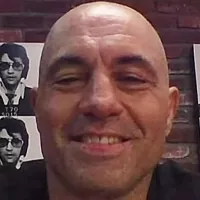
Joe Rogan is an American podcaster comedian and UFC color...
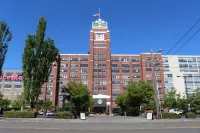
Starbucks is an American multinational coffeehouse chain established in Seattle...

Kurt Cobain was the frontman of Nirvana a highly influential...
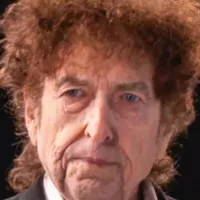
Bob Dylan is a highly influential American singer-songwriter renowned as...
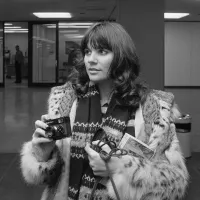
Linda Ronstadt is a versatile American singer renowned for her...
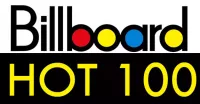
The Billboard Hot is the primary music chart in the...
Trending
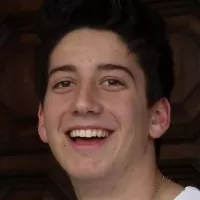
10 months ago Milo Manheim and Liz Gillies bond in Little Shop of Horrors, extend run.
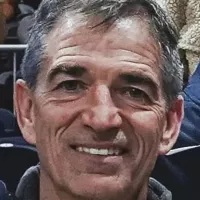
4 months ago Archer Aviation's Stock Soars Amid Flight Test Success and Air Show Announcement.

8 months ago Bailey Zimmerman Serves Chicken, Announces New Album 'Different Night Same Rodeo'

8 months ago Alex Warren to electrify the 2025 American Music Awards with a stellar performance.
3 months ago Lockheed Martin Exceeds Q3 Expectations, Increases Dividend and Buyback Program, Raises Profit Outlook

3 months ago Alex Eala Enters Hong Kong Campaign with Career-High Ranking, World No. 51
Popular

Thomas Douglas Homan is an American law enforcement officer who...

William Franklin Graham III commonly known as Franklin Graham is...

XXXTentacion born Jahseh Dwayne Ricardo Onfroy was a controversial yet...

Jupiter is the fifth and largest planet from the Sun...

Kristi Noem is an American politician who has served as...

Instagram is a photo and video-sharing social networking service owned...
